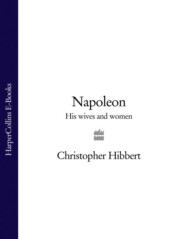По всем вопросам обращайтесь на: info@litportal.ru
(©) 2003-2025.
✖
Disraeli: A Personal History
Настройки чтения
Размер шрифта
Высота строк
Поля
As well as Government House, a former convent, where he introduced his visitors to his favourite drink, champagne and lemonade, Sir George enjoyed the use of ‘a delightful Pavillion…at the extreme point of the Rock’ as well as a villa at San Roque. He suggested that, having enjoyed his hospitality at these places, his guests should make an excursion into Spain, a venture which foreign tourists seldom undertook since the few posadas offered little apart from a roof for the night and plenty of bugs. But the scenery was ‘most beautiful’ and, although the terrain was infested with robbers and smugglers, these miscreants, so Disraeli was assured, ‘commit no personal violence but lay you on the ground and clean out your pockets. If you have less than sixteen dollars they shoot you. That is the tariff and is a loss worth risking.’ In the event, Disraeli and Meredith were not troubled by these bandits; but on their return to Griffith’s Hotel in Gibraltar they encountered two Englishmen who had been robbed of all their possessions in a village through which they also had passed a day or two earlier with their French guide and manservant, an excellent cook and ‘celeberated shot’ who, so Disraeli said, ‘could speak all languages except English of which he [made] a sad affair’.
He is fifty but light as a butterfly…He did everything, remedied every inconvenience, and found an expedient for every difficulty. Never did I live so well as among these wild mountains of Andalusia, so exquisite is his cookery…
You will wonder how we managed to extract pleasure from a life which afforded us hourly peril for our purses and perhaps for our lives, which induced fatigue greater than I ever experienced, for there are no roads and we were never less than eight hours a day on…two little Andalusian mountain horses.
(#litres_trial_promo)
Disraeli ended his long letter to Bradenham by sending his fondest regards to his ‘beloved Sa’ and ‘a thousand kisses’ to his ‘dearest mother’. ‘Tell Ralph I have not forgotten his promise of an occasional letter…And tell [Washington] Irving [whose Legends of Alhambra was to be published shortly] that he has left a golden name in Spain.’
Disraeli and Meredith were themselves so taken with Spain that they stayed there for two months, far longer than they had originally intended. In the middle of July, they went to Cadiz where ‘Figaro [was] in every street, and Rosina in every balcony’.
(#litres_trial_promo) And, towards the end of the month, they were in Seville, where Disraeli wrote to his father to tell him that, while his health had improved and the ‘fearful heat’ of Seville suited him, the improvement was ‘very slight’ and his recovery would, at best, be ‘a long affair’. He was even more pessimistic in a letter from Granada to his mother, to whom he complained about the palpitations in his heart and head which were followed by ‘an indescribable feeling of idiocy’ and ‘for hours’ he was ‘plunged into a state of the darkest despair’.
He was worried also by what he took to be incipient baldness: ‘I am sorry to say my hair is coming off, just at the moment it had attained the highest perfection, and was universally mistaken for a wig, so that I was obliged to let the women pull it to satisfy their curiosity. Let me know what my mother thinks. There are no wigs here that I cd wear. Pomade and all that is quite a delusion. Somebody recommends me cocoa-nut oil, which I cd get here, but suppose it turns it grey or blue or green?’
In her reply, Sarah told him that ‘Mamma advises him to try Coca-Nut or anything’. She was sure that she could arrange for him to be sent a wig.
(#litres_trial_promo)
In a letter to his mother, he said that if he were a Roman Catholic he would enter a convent, ‘But as I am a member of a family to which I am devotedly attached and a good Protestant I shall return to them and to my country, and to a solitary room which I will never leave. I shall see no one and speak with no one. I am serious. Prepare yourself for this.’
The tone of the rest of his letter, however, belied this gloomy prognostication. Although, as he said, ‘rather an admirer of the blonde’, he wrote enthusiastically of Spanish ladies, ‘their glossy black hair and black mantillas, their gleaming eyes and dignified grace’. He wrote also of the delicious fruits of the Peninsula, of paella, ‘the most delicious dish in the world’, and of tomato sauce for which he provided a recipe – and, having done so, he added a note for his mother: ‘I need not tell the mistress [of] so experienced a cuisine as you to add a small quantity of onion in frying the tomatas.’
(#litres_trial_promo)
I travelled through the whole of Andalusia on horseback [he reported with pride to Benjamin Austen]. I was never less than twelve hours on my steed, and more than once saw the sun set and rise without quitting my saddle, which few men can say, and I never wish to say again. I visited Cadiz, Seville, Cordova and Granada…I sailed upon the Guadalquivir, I cheered at bullfights; I lived for a week among brigands and wandered in the fantastic halls of the delicate Alhambra [a building which stood comparison, he thought, with the Parthenon and York Minster].
I entered Spain a sceptic with regard to their robbers, and listened to all their romances with a smile. I lived to change my opinion. I at length found a country where adventure is the common course of existence.
(#litres_trial_promo)
‘Run, my dear fellow, to Seville,’ he told Austen in another letter, ‘and for the first time in your life know what a great artist is – Murillo, Murillo, Murillo!’
(#litres_trial_promo)
On his way to Córdoba, riding by moonlight, his party’s guide suddenly informed them that ‘he heard a trampling of horses in the distance’, and Disraeli gave an entertaining description of his alarm in a letter to his sister:
Ave Maria! A cold perspiration came over me. Decidedly they approached, but rather an uproarious crew. We drew up out of pure fear, and I had my purse ready. The band turned out to be a company of actors travelling to Cordova. There they were, dresses and decorations, scenery and machinery, all on mules and donkeys. The singers rehearsing an opera; the principal tragedian riding on an ass; and the buffo, most serious, looking as grave as night, with a cigar, and in greater agitation than them all. Then there were women in side-saddles, and whole panniers of children…All irresistibly reminded me of Cervantes. We proceed and meet a caravan of armed merchants, who challenged us, and I nearly got shot for not answering in time. Then come two travelling friars who give us their blessing and then we lose our way. We wander about all night, dawn breaks, and we stumble on some peasants sleeping in the field amid their harvest. We learn that we cannot regain our road, and, utterly wearied, we finally sink to sound sleep with our pack-saddles for our pillows.
(#litres_trial_promo)
The occasional complaints about his health in his letters are at odds with passages of cheerfully facetious self-congratulation:
I maintain my reputation of being a great judge of costume to the admiration and envy of many subalterns [he had written from Gibraltar]. I have also the fame of being the first who ever passed the Straits with two canes, a morning and an evening cane. I change my cane as the gun fires…It is wonderful the effect these magical wands produce.
(#litres_trial_promo)
He later added a fan to his accoutrements, which made the canes ‘extremely jealous’.
At the Alhambra in Granada, so Meredith said, the elderly guide was convinced that Disraeli ‘was a Moor, many of whom come to visit this palace, which, they say, will be theirs yet again. His southern aspect, the style in which he paced the gorgeous apartments and sat himself in the seat of the Abencerrajes [a prominent family in the Nasrid Kingdom of Granada in the fifteenth century], his parting speech, “Es mi casa”, “This is my palace”, all quite deceived the guide.’
‘Oh! Wonderful Spain!’ Disraeli wrote enthusiastically to his sister on 14 August. ‘Think of this romantic land covered with Moorish ruins and full of Murillo!…I thought that enthusiasm was dead within me and that nothing could be new. I have hit perhaps upon the only country which could have upset my theory, a country of which I have read little, and thought nothing, a country of which, indeed, nothing has been written and which few visit.’ ‘I dare to say’, he added, ‘that I am better.’
He was occasionally homesick, though. ‘Write to me about Bradenham,’ he told Sarah, ‘about dogs and horses, gardens, who calls, who my father sees in London, what is said. That is what I want. Never mind public news…Keep on writing but don’t bore yourself. A thousand, thousand loves to all. Adieu, my beloved. We shall soon meet. There is no place like Bradenham, and each moment I feel better I want to come back.’
(#litres_trial_promo)
A few days after this letter was written, Disraeli and Meredith sailed for Malta, where they were incarcerated for a week in the Lazaretto before being allowed out to take rooms at Beverley’s, a much better hotel than the ‘horrid’ Griffith’s Hotel in Gibraltar.
Valetta, the capital of Malta, was a place of which he expected nothing and found much, Disraeli wrote in a letter to Benjamin Austen. Indeed, he said, ‘it surprises me as one of the most beautiful cities I have ever visited, something between Venice and Cadiz…It has not a single tree but the city is truly magnificent, full of palaces worthy of Palladio.’
(#litres_trial_promo)
Here they met a handsome and dissipated young man, a most energetic womanizer, James Clay, who had been at Oxford with Meredith. He was the son of a rich merchant and a nephew of Sir William Clay, Secretary to the Board of Control in Lord Melbourne’s ministry. He had chartered an impressive fifty-five-ton yacht with a crew of seven, and was attended by an equally impressive-looking manservant with mustachios which, in Disraeli’s words, ‘touch the earth. Withal mild as a lamb, tho’ daggers always about his person.’ This was Giovanni Battista Falcieri, Byron’s former manservant.
(#litres_trial_promo)
The presence of Clay [observed Robert Blake in his excellent account of Disraeli’s tour] removed whatever restraining influence Meredith may have had on Disraeli. He now behaved with a flamboyance, conceit and affectation which did him no good, though he seems to have been wholly unaware of this in his letters.
(#litres_trial_promo)
‘Affectation tells here even better than wit,’ Disraeli wrote from Malta. ‘Yesterday at the racket court [as I was] sitting in the gallery among strangers, the ball entered, slightly struck me, and fell at my feet. I picked it up and, observing a young rifleman excessively stiff, I humbly requested him to forward its passage into the court, as I really had never thrown a ball in my life. This incident has been the general subject of conversation at all the messes today.’
(#litres_trial_promo)
It is most doubtful that this kind of affectation created such ‘a good impression’ as Disraeli thought it did; or that his collection of pipes – his ‘Turkish pipe six feet long with an amber mouth piece’, his Meerschaum, and his ‘most splendid Dresden green china pipe’ – helped him to become the ‘greatest smoker in Malta’. Nor can his flamboyant clothes have elicited the admiration he liked to suppose, consisting, as one outfit did, of ‘the costume of a Greek pirate, a blood-red shirt with silver studs as big as shillings, an immense scarf or girdle full of pistols and daggers, a red cap, red slippers, blue broad-striped jacket and trousers…Excessively wicked.’
(#litres_trial_promo) This ensemble, so James Clay assured him, helped him to achieve a ‘complete and unrivalled triumph’, a description more suited to Disraeli’s own opinion of his success than to Clay’s. Indeed, Clay, who later became an authority on whist and Member of Parliament for Hull, gave Sir William Gregory, an Irish Member, the impression that Disraeli on Malta had been an object of derision and distaste rather than admiration.
‘It would not have been possible to have found a more agreeable, unaffected companion when they were by themselves,’ Gregory wrote. ‘But when they got into society, his coxcombry was intolerable…He made himself so hateful to the officers’ mess that, while they welcomed Clay, they ceased to invite “that damned bumptious Jew boy” who, when he had been invited, turned up in Andalusian dress.’
(#litres_trial_promo)
William Meredith said that when Disraeli ‘paid a round of visits’, he would do so in his ‘white trousers, and a sash of all the colours in the rainbow. In this wonderful costume he paraded all round Valetta, followed by one-half of the population, and, as he himself said, putting a complete stop to all business. He, of course, included the Governor [Sir Frederick Ponsonby] and Lady Emily in his round to their no small astonishment.’
Yesterday I called on Ponsonby [Disraeli told his father]. I flatter myself that he passed through the most extraordinary quarter of an hour of his existence. I gave him no quarter and at last made our nonchalant Governor roll on the sofa, from his risible convulsions. Then I jumped up, remembered that I must be sadly breaking into his morning, and was off, making it a rule always to leave with a good impression. He pressed me not to go. I told him I had so much to do! I walked down the Strada Reale, which is nearly as good as Regent Street, and got five invitations to dinner (literally a fact). When I arrived home I found an invitation for Tuesday.
(#litres_trial_promo)
At the beginning of October 1830, Clay and his friends sailed for Cyprus, a ‘most lovely island’, in a chartered yacht, the Susan, a name which, so Disraeli said, was a ‘bore, but, as we can’t alter it, we have painted it out’; and from there they sailed for Prevesa, now in Greece, at that time part of the Turkish empire.
They then travelled overland to Arta, where Disraeli was deeply moved by the muezzin call from the minaret. Here the Albanian governor provided the travellers with an escort to take them on to Yanina, where they were presented to the Grand Vizier before whom Disraeli ‘bowed with all the nonchalance of St James’s’.
The Grand Vizier was ‘a little, ferocious-looking, shrivelled, careworn man, placidly dressed with a brow covered with wrinkles, and with a countenance clouded with anxiety and thought’.
The English travellers, who had been shown into his divan ‘ahead of a crowd of patient supplicants in the ante-chamber’, were then taken to the Grand Vizier’s son, who was the very reverse of his father – ‘incapable of affairs, refined in his manners, plunged in debauchery and magnificent in dress. Covered with gold and diamonds, he bowed to us with the ease of a Duke of Devonshire and said the English were the most polished of nations.’
I can give you no idea in a letter of all the Pashas and all the Agas that I have visited [Disraeli told Benjamin Austen]; all the pipes I smoked, all the coffee I sipped, all the sweetmeats I devoured…For a week I was in a scene equal to anything in the Arabian Nights – such processions, such dresses, such cortèges of horsemen, such caravans of camels, then the delight of being made much of by a man who was daily decapitating half the Province. Every evening we paid visits, attended reviews, and crammed ourselves with sweetmeats; every evening dancers and singers were sent to our quarters by the Vizier or some Pasha.









